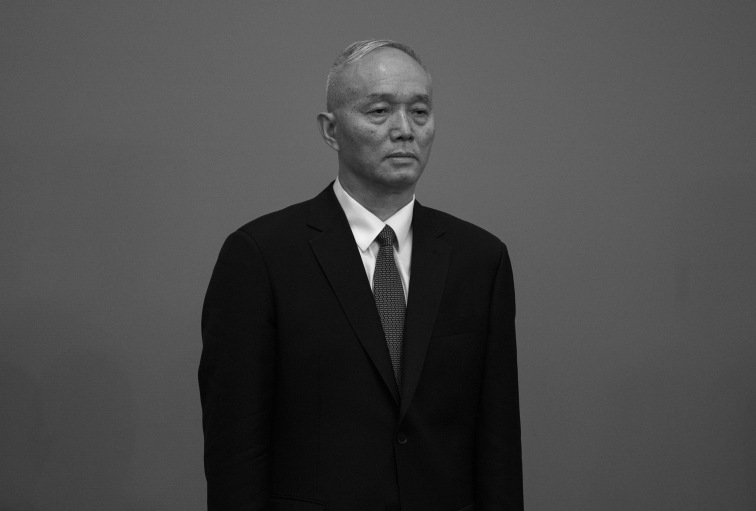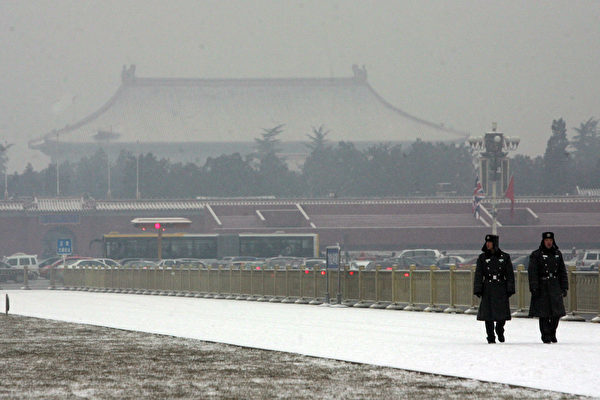[People News] Japanese Prime Minister Sanae Takaichi’s statement during a Diet session—“A Taiwan emergency is a Japan emergency”—triggered intense dissatisfaction from the Chinese Communist regime, which quickly launched a series of retaliatory actions. Relations between the two countries deteriorated rapidly. South Korea’s Chosun Ilbo reported on the 17th that Japan–China relations are heading toward the worst state seen in the 53 years since diplomatic normalization.
The report noted that this conflict is especially unusual because Takaichi and Xi Jinping had reaffirmed their “mutually beneficial strategic relationship” in Gyeongju, South Korea, just at the end of last month. Yet only half a month later, the situation reversed entirely. After Xi’s meeting with Takaichi on October 31, the CCP resumed imports of Japanese seafood and extended visa-free short-term entry for Japanese nationals. Thus, “Xi Jinping’s face” is seen as one of the reasons for Beijing’s hardened stance.
As a Liberal Democratic Party member, Takaichi follows the legacy of Shinzo Abe and is a strong pro-Taiwan, anti-CCP hardliner. Her positions align with Japan’s Seiwa Seisaku Kenkyūkai (Abe faction), the conservative religious-nationalist group Nippon Kaigi, and the LDP’s traditional hawkish camp (security, constitutional revision, and pro-deterrence toward China). They view the CCP as Japan’s greatest long-term threat, emphasize strengthening the Japan–U.S. alliance as the core of national security, regard Taiwan’s stability as Japan’s “first-island-chain security shield,” and advocate constitutional revision to enable the Self-Defense Forces to function as a true “national defense military.”
1. What the CCP Says Doesn’t Change What Ordinary People Do
On Nov. 14, China’s ambassador to Japan, Wu Jianghao, claimed that Takaichi’s remarks crossed Beijing’s “red line.” Vice Foreign Minister Sun Weidong also threatened, “Anyone who dares to interfere in China’s sacred cause of reunification in any form will be met with a head-on blow!” Such statements are unprecedented.
Yet despite CCP pressure, Chinese travel to Japan does not seem significantly affected. From January to September, visits by Chinese tourists reached 7.4872 million. Chinese travelers are still going to Japan as planned—while Japan, overwhelmed by tourists, is struggling with overtourism. Some even say, “If Chinese tourists don’t come, it might actually help us deal with excessive tourism in the short term.”
2. Akio Yaita: Banning Xue Jian From Public Appearance Is the Best Humiliation
Akio Yaita, senior Japanese journalist and executive director of the Indo-Pacific Strategy Think Tank (IPST), said that if an ordinary person made Xue Jian’s “beheading remark,” the police would have taken him away already. Because Xue has diplomatic immunity, Japan’s only option is expulsion—but expelling him carries risks, and the Takaichi administration must weigh them carefully.
“Expulsion is the heaviest and most destructive diplomatic tool,” he said. “It is not a step that can be taken lightly.”
Yaita explained that Japan worries the CCP may turn Xue into an “anti-Japan hero” if he is expelled. With nationalism rising sharply in China, it is entirely possible he would be glorified upon returning and continue inciting anti-Japan sentiments. This is precisely what Japan wants to avoid. The CCP might also retaliate by expelling Japanese diplomats or stirring up anti-Japan sentiment, placing Japanese residents and students in China at higher risk.
Yet if Japan does not expel him, domestic public anger is already boiling. Takaichi’s conservative-leaning administration does not want to be accused of “being soft on China.” This puts the government in a difficult dilemma.
Yaita suggested another approach: “Let Xue Jian stay in Japan—hand this hot potato back to Beijing.”
He noted: “A diplomat who is disliked by Japanese society and unwelcome at events cannot conduct meaningful diplomatic work. No organization would invite him. He would lose all influence and become a prisoner of his own wolf-warrior posture. In a way, this could weaken him even more effectively than expulsion.”
Kyodo News reported on the 17th that the CCP’s Osaka Consulate abruptly canceled the “8th Western Japan–China Friendship Exchange Conference,” scheduled for the 21st in Hiroshima, citing “security considerations.” Xue Jian had been expected to attend but voluntarily restricted his activities after the backlash over his wolf-warrior remarks.
3. Wolf-Warrior Rhetoric Yields Big Benefits—It Helps Make America Great Again
Following Xue Jian’s beheading threat, U.S. Ambassador to Japan Rahm Emanuel criticized him, saying: “His mask has slipped again. Just months ago, he compared Israel to Nazi Germany. Now he threatens the Japanese prime minister and the Japanese people. It’s time for Beijing to act like the ‘good neighbor’ it claims to be instead of repeatedly failing to match words with deeds.”
Some observers say that the 57-year-old consul general made such crude remarks to get Xi Jinping’s attention, hoping—like former ambassador to France Lu Shaye—to secure extended tenure through wolf-warrior behavior.
Reports noted that when Lu Shaye was interviewed by France’s LCI TV on April 21 and asked whether Crimea belonged to Ukraine, he replied: “It depends on how you view the issue. Historically, Crimea was originally Russian. During the Soviet era, Khrushchev gave Crimea to Ukraine.”
CCP cadres excel at opportunism. Xi Jinping encourages wolf-warrior rhetoric and rewards those who engage in it. Under this example, diplomats eager for career advancement compete to act tough and demonstrate loyalty to Xi.
In the short term, wolf-warrior rhetoric works domestically. It can fool “little pinks,” boost nationalistic cohesion, project a strong-nation image, intimidate smaller countries, and reinforce Xi’s narrative of “institutional confidence.”
In the long term, it helps accelerate the CCP’s demise. It makes the regime look aggressive, unites the world against it, and—unexpectedly—reduces global trust in China while pushing small countries back toward the United States as their preferred ally.
Overall, wolf-warrior rhetoric accelerates “the downfall of the CCP” and boosts “making America great again.” The immediate outcome is this: Xi Jinping’s disruptive behavior has turned him into a “global enemy,” while Trump becomes “the world’s leader again” without even trying.
(First published by People News Online)
△










News magazine bootstrap themes!
I like this themes, fast loading and look profesional
Thank you Carlos!
You're welcome!
Please support me with give positive rating!
Yes Sure!